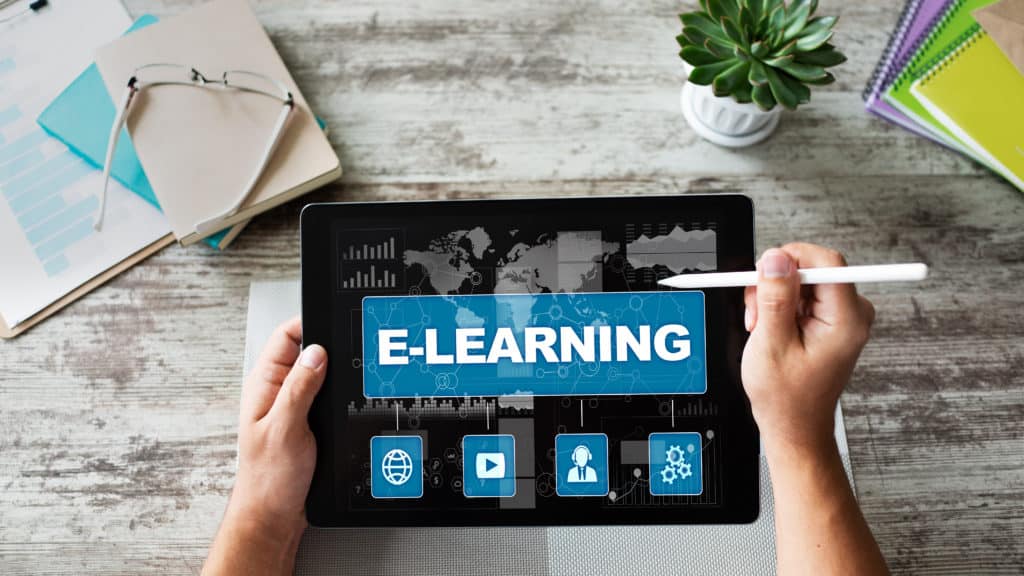Online learning continues to revolutionize education worldwide, and in 2025, Pakistan is witnessing unprecedented growth in this sector. With the expansion of digital platforms, enhanced internet penetration, and increasing government initiatives, e-learning is transforming the educational landscape. However, challenges such as accessibility, affordability, and quality assurance persist. This article explores the current landscape, future trends, benefits, and obstacles of online education in Pakistan in 2025.

The Growth of Online Learning in Pakistan
Latest Statistics and Trends
| Aspect | Statistics (2025) |
|---|---|
| Internet Penetration | 65%+ population has internet access |
| Online Course Enrollment | Increased by 90% since 2020 |
| E-learning Platforms | 300+ platforms providing courses |
| Government Initiatives | 15+ digital education projects |
Key Drivers of Growth in 2025
-
5G Expansion: Faster and more reliable internet access.
-
Post-COVID Adoption: Hybrid and remote learning have become the norm.
-
Government Support: Increased funding for digital education programs.
-
EdTech Startups: Growth in local e-learning platforms offering industry-relevant courses.
Benefits of Online Learning in Pakistan
1. Enhanced Accessibility & Flexibility
-
Rural areas now have better access due to improved internet infrastructure.
-
More students benefit from self-paced learning options.
2. Cost-Effective Education
-
Reduced tuition fees compared to traditional education.
-
Scholarships and government subsidies for online learners.
3. Expanding Course Offerings
-
Emerging fields like AI, blockchain, and cybersecurity are widely available.
-
International university collaborations providing globally recognized certifications.
4. Career-Focused Learning
-
More students enrolling in freelancing and entrepreneurship courses.
-
Increased demand for tech-based skills leading to better job opportunities.
Challenges of Online Learning in Pakistan
1. Digital Divide Still Exists
-
Despite improvements, rural areas still face connectivity issues.
-
Many students rely on mobile data, which remains expensive.
2. Quality Assurance & Accreditation Issues
-
Need for stronger regulatory frameworks to ensure credibility.
-
Employers still skeptical about online degrees from lesser-known platforms.
3. Technological Barriers Persist
-
Electricity shortages continue to disrupt learning in some areas.
-
Not all students have access to high-end devices required for immersive learning.
4. Traditional Mindsets & Resistance
-
Some parents and educators still prefer conventional education.
-
Shift towards digital education needs more awareness campaigns.
Future Trends in Online Learning in Pakistan (2025 & Beyond)
1. AI & Personalized Learning
-
AI-driven platforms offering adaptive learning experiences.
-
Chatbots and AI tutors enhancing student engagement.
2. More Hybrid Learning Models
-
Universities integrating online and in-person learning.
-
Corporate training shifting towards digital-first approaches.
3. Strengthening Government Digital Education Policies
-
Increased budget allocation for online education.
-
Government-backed e-learning platforms expanding their reach.
4. Growth of Micro-Credentials & Specialized Courses
-
Employers prioritizing skills-based certifications over traditional degrees.
-
Rise of nanodegrees and job-oriented training programs.
Traditional vs. Online Education in Pakistan (2025 Comparison)
| Feature | Traditional Education | Online Learning (2025) |
| Flexibility | Fixed schedule | Self-paced & hybrid |
| Cost | High tuition fees | More affordable with scholarships |
| Accessibility | Limited to urban areas | Nationwide availability |
| Quality Control | Regulated by HEC | More recognized certifications |
| Skill Development | Theory-focused | Practical, job-ready skills |
Recommendations for Improvement
For Government & Institutions:
-
Continue expanding broadband access in rural areas.
-
Introduce accreditation standards for all online courses.
-
Provide financial aid and affordable device schemes for students.
For Students & Professionals:
-
Enroll in accredited and reputable online programs.
-
Build digital literacy and time-management skills.
-
Network with peers and instructors for better learning experiences.
For Employers & Organizations:
-
Recognize and validate online certifications.
-
Offer digital skills training for employees.
-
Collaborate with e-learning platforms for industry-relevant training.
In 2025, online learning in Pakistan is more advanced and widespread than ever. While accessibility and quality assurance remain challenges, technological advancements and government support are driving significant improvements. The future holds great potential, with a shift towards hybrid education, skill-based certifications, and AI-driven learning experiences. By addressing existing barriers, Pakistan can establish a robust and globally competitive online education system.
Frequently Asked Questions
1. Is online learning effective in Pakistan in 2025?
Yes, due to improved internet access, better course quality, and employer recognition.
2. Are online degrees fully recognized in Pakistan?
Many universities and platforms now offer accredited degrees, but verification is still essential.
3. What are the best online learning platforms in 2025?
Leading platforms include Virtual University, DigiSkills.pk, Coursera, Udemy, and emerging local EdTech startups.
4. How can the government further improve online education?
Expanding affordable internet access, setting quality standards, and promoting public awareness.
5. What are the most in-demand online courses in Pakistan (2025)?
AI, data science, cybersecurity, blockchain, freelancing, and digital marketing are among the top choices.
Related Articles
-
Ilmkidunya 19/Aug/2025
All Punjab Boards 9th Class Result 2025 – Announced Tomorrow at 10 AM
-
Ilmkidunya 18/Aug/2025
3 Methods to Check Lahore Board 9th Class Result
-
Ilmkidunya 16/Aug/2025
How to Check Your 9th Class Result from All BISEs of Punjab
-
Ilmkidunya 15/Aug/2025
Why IAUK Is a Top Study Abroad Consultancy in Pakistan
-
Ilmkidunya 15/Aug/2025
Is UMT Worth It? A Complete Guide for Prospective Students
-
Ilmkidunya 12/Aug/2025
Common Study Mistakes Students Should Avoid
-
Ilmkidunya 12/Aug/2025
How to Write an Effective Research Paper
-
Ilmkidunya 11/Aug/2025
Students Club Specialist for Uk Study Visa Consultants in Pakistan
-
Ilmkidunya 05/Aug/2025
Importance of Time Management for Academic Success
-
Ilmkidunya 01/Aug/2025
Students Club Specialist for Uk Study Visa Consultants in Pakistan

.gif)









.png)

